
The 165 journal articles authored or co-authored by VIMS researchers in 2018 were talked about around the world. Here are the 15 that received the most "buzz."


The 165 journal articles authored or co-authored by VIMS researchers in 2018 were talked about around the world. Here are the 15 that received the most "buzz."

A study initiated by Dr. Ryan Carnegie of VIMS reveals that oyster aquaculture can limit the spread of disease among wild populations of the tasty bivalve. The findings counter long-held beliefs that diseases often spread from farmed to wild populations.

The National Estuarine Research Reserve System and its non-profit arm honor Dr. William Reay with their highest award during the annual NERRS-NERRA meeting in early November.
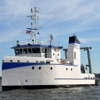
The 93-foot R/V Virginia will allow scientists to monitor and study Chesapeake Bay and its marine life more effectively, and expands VIMS’ research footprint into the open waters of the coastal Atlantic.
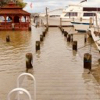
Executive Order leverages VIMS long-term monitoring programs and expertise in flood forecasting to help make the Commonwealth more resilient to sea-level rise.

The Virginia Institute of Marine Science honored four staff members with the inaugural Massey Medallion at its Fall Seafood Feast on September 30.
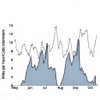
Annual model-based report on low-oxygen conditions in the Bay during 2018 indicates a total volume of “hypoxic” waters very similar to the previous year, but with a sharp drop in hypoxia during late July due to mixing by strong winds. The duration of hypoxia in 2018 was greater than in recent years.
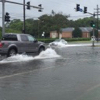
Event provides water-level data used to improve VIMS’ street-level inundation model and its predictions of coastal flooding in Hampton Roads.

VIMS' Eastern Shore Laboratory welcomed a record-setting crowd for its 5th annual Marine Life Day event on September 22nd.
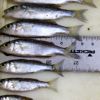
Researchers with VIMS' long-term survey recorded 10.72 young-of-year striped bass per seine haul in the Virginia portion of Chesapeake Bay during 2018, similar to the historic average of 7.77. The 2018 year class represents the group of fish hatched this spring that will grow to fishable sizes in three to four years.
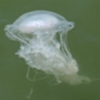
Comparing environmental conditions in the Chesapeake Bay to the abundance & distribution of its jellyfish populations over two decades helps explain how our rainy spring led to fewer bay nettles this summer, and raises concerns that a predicted shift toward wetter springs may harm the Bay ecosystem.

The Virginia Institute of Marine Science has announced the winners of its 19th-annual photo contest, recognizing the most noteworthy images captured by VIMS faculty, students, and staff while conducting research in the field and laboratory.

Oyster growers in Virginia’s portion of Chesapeake Bay can apply for funding through USDA’s Regional Conservation Partnership Program to help restore oyster beds on private shellfish grounds.
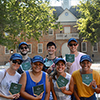
The Virginia Institute of Marine Science officially welcomed 14 new graduate students to its Gloucester Point campus.
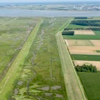
Global study addresses a major uncertainty in how saltmarshes and mangroves will respond to sea-level rise; stresses importance of preserving "accommodation space” for landward migration.

VIMS professor Kevin Weng part of tracking study that provides critical information for international management of high-seas species.

Collaboration among VIMS, local cities, the Commonwealth Center for Recurrent Flooding Resiliency, and other partners uses networked water-level sensors to help localities prepare for flooding from storm surge, rain, and tides.
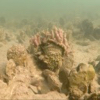
VIMS researchers lead development of online tool that quantifies oysters’ contribution to “pollution diets” designed to restore water quality in Chesapeake Bay.

Findings suggest that mature rays likely return to the same nursery grounds in Chesapeake Bay each summer, strengthening case for precautionary management strategies
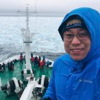
Assistant professor Donglai Gong and graduate student Lydia Bienlien—aboard the vessel Akademik Ioffe as part of the NSF-funded Northwest Passage Project— were transferred with all other passengers to a sister ship following the grounding incident.
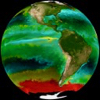
Professor Deborah Steinberg is a chief scientist for a major NASA-funded research expedition that is using data from ships and satellites to better understand and predict the fate of carbon dioxide in the ocean.
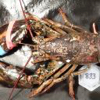
New findings reveal that earlier springs and hotter summers in the northeastern U.S. are making resident lobsters increasingly susceptible to epizootic shell disease, a condition that has depleted the southern New England population and severely impacted the local lobster fishery.

Unusually fresh waters have impacted everything from algal blooms to fish distributions, oyster mortality and disease prevalence, the conduct of lab experiments, and the incidence of low-oxygen dead zones.
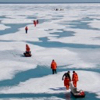
VIMS researchers will travel to the North Pole this August for a month-long study of one of the major uncertainties in climate-change research—the complex interplay between sea ice, marine life, and clouds.
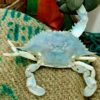
Jim McInteer and crewmate Alan Payne knew they had captured an oddity the moment they saw the all-blue blue crab in their York River crab pot.
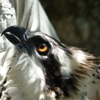
Entangled in fishing line brought to the nest by a parent, the chick suffers severe injury and must be euthanized.
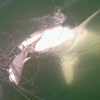
Rare sightings are only the 5th and 6th great whites encountered during the 45-year history of VIMS Shark Longline Survey and are likely related to unusually cool waters.
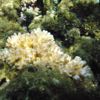
A new study puts a surprising twist into our understanding of how corals react to ocean warming and acidification and may offer an early warning system for warmth-induced coral bleaching events.
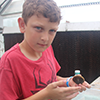
Exhibits and activities show how VIMS’ research in Chesapeake Bay and around the world helps protect and restore marine ecosystems.
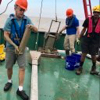
A joint VIMS-Myanmar research team is studying the processes that control the fate of the low-lying Irrawaddy-Salween Delta and its 50 million inhabitants.

Seventeen students take part in commencement ceremonies at William & Mary.
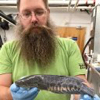
The first northern snakehead found within the James River drainage has now been deposited in the Nunnally Ichthyology Collection at VIMS, where it will be used to train and educate biologists and the public.

Each year the VIMS community gathers to recognize exemplary performance by faculty, staff, and students. Learn about this year's honorees.

Professors Christopher Hein and Matthew Kirwan will use stipends to engage students in field research and advisory service activities.

VIMS report shows the abundance of Bay grasses increased 5% between 2016 and 2017 to 104,843 acres—the highest amount ever recorded and the third consecutive year of record-breaking abundance.

The New England Fishery Management Council recognizes VIMS emeritus professor Bill DuPaul as a pioneer of cooperative research in the Atlantic sea scallop fishery.
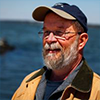
Candidates are nominated by members of Virginia’s environmental community, and judged on the basis of their vision, expertise, commitment, integrity, communication skills, accomplishments, and diplomacy.
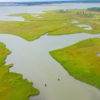
Results of groundbreaking study help establish how flow and burial of carbon in wetland, estuary, and shelf ecosystems influences climate.

Donald W. Davis Hall—the first LEED-certified building on VIMS’ Gloucester Point campus—will centralize and upgrade research and office space for a number of existing programs.
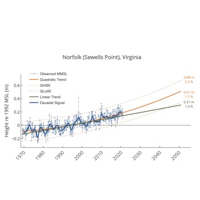
Interactive plots provide annual sea-level projections to 2050 for 32 localities along the U.S. coastline from Maine to Alaska.

Research ties long-term nutrient reductions in Bay to a resurgence of underwater grasses, support continued nutrient reductions via conservation incentives and EPA’s Total Maximum Daily Load.

VIMS professor Robert “JJ” Orth has been named one of Virginia’s three Outstanding Scientists for 2018 by Virginia Governor Ralph Northam and Richard Conti of the Science Museum of Virginia.

State Council of Higher Education for Virginia recognizes VIMS professor Deborah Bronk and alumna Dr. Jennifer Martin for their accomplishments in teaching, service, and research.

Virginia anglers tag more than 19,500 fish in 2017—bringing total above 300,000 tagged in program's history.
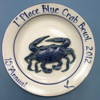
First-time winner will move on to represent Virginia at the National Ocean Science Bowl in Colorado in April.
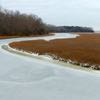
In an era of sea-level rise and global warming, almost two weeks of low tides and chilly temps has raised a host of questions, as well as concerns among vessel operators and oyster growers. VIMS professors help explain the apparent contradictions.

The 134 journal articles authored or co-authored by VIMS researchers in 2017 were talked about around the world. Here are the 15 that received the most "buzz."

VA Governor-elect Ralph Northam has named Matt Strickler—a 2007 graduate of the Thomas Jefferson Program in Public Policy at W&M and VIMS—as Virginia’s next Secretary of Natural Resources.
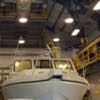
The latest grant from W&M's Committee on Sustainability will reduce electricity usage and improve working conditions on our Gloucester Point campus.

A new review article presents evidence that argues for a more nuanced approach to the design of global-change experiments—one that acknowledges and purposefully incorporates the variability inherent in nature.